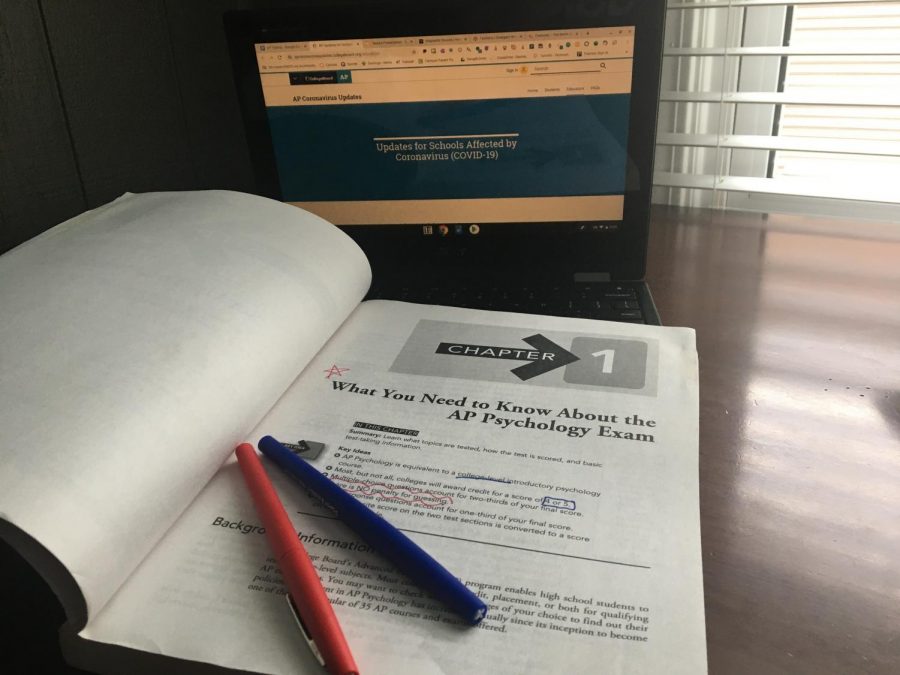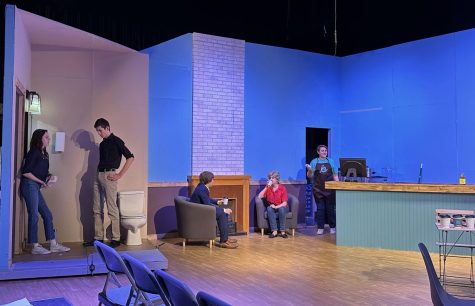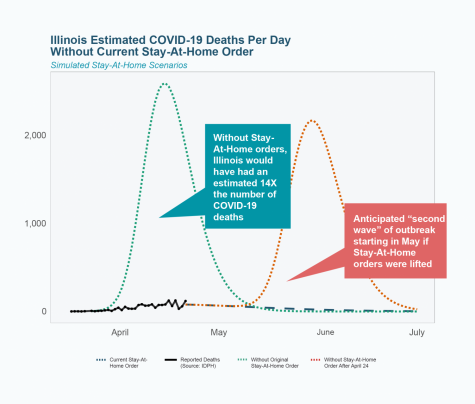Naperville North students affected by new COVID-19 AP Testing changes
Junior Shailen Doshi always squeezes into his lucky, youth large Walter Payton jersey on the day of big exams. This year, he will be putting on his lucky jersey, yet again, to take his first Advanced Placement Exams, AP Psychology and AP English Language and Composition. As boring and difficult as he feels standardized tests are, the part he dreads most is sitting in an uncomfortable chair for three hours. But now, with COVID-19-related test changes, he will no longer have to bear this back pain.
“The unexpected has come to be expected over the last few weeks, and this change is only a part of a complete overhaul that has happened in the lives of high-schoolers across the nation,” Doshi said.
On March 20, College Board announced that these exams will not be offered in person and will instead be held at home amid COVID-19 safety concerns. The exams will be 45 minutes instead of the normal two to three hour length and the exams will not contain multiple-choice questions.
The opportunity to earn credit and placement for college is a huge motivator for students across the country. While it is not the plan to take away something they have been working towards all year, the College Board acknowledged that health is the number one priority right now and that adjustments have to be made.
On April 3, a revised schedule for this year’s AP exams included two separate online testing dates to accommodate for changes in student’s lives during the global pandemic. This allows students to take the exam earlier while the content is fresh or to prepare more prior to the test. To address this inevitable loss of instructional time, exams will be testing on a reduced range of content—material that is expected to have been covered before March.
Students at North have mixed feelings about these accommodations. Junior Ellie Hall feels relieved: she expects her AP English Language and Composition test to be simpler with the shortened content and convenience of being at home.
“I think it is going to be a lot less stressful than the original test,” Hall said. “The fact that we get to take them at home is going to make the energy of the testing environment way calmer than a room full of anxious teenagers.”
On the contrary, Doshi is slightly nervous about the content change. While there will be less material to review before the exam, he worries that the grading might be harsher.
“Often the only way to study for AP tests is by practicing the information in the form of multiple choice questions, but since the new tests aren’t going to have those, I’m not sure how prepared I’m going to be,” Doshi said.
College Board recognizes all of these concerns. They have made more accommodations and provided resources to help students and teachers prepare for the altered tests, such as free AP review classes, which began March 25.
According to College Board, colleges are supporting this solution and are committed to ensuring that AP students receive the same credit as any other year. Additionally, College Board is allowing students who are already registered for an exam the option to cancel at no additional charge.
“There are varying concerns and benefits [about these changes],” Doshi said, “but I’m not sure if one outweighs the other. I guess we’ll all have to find out together.”

Tessa Devine is a senior at Naperville North and is beyond honored to be this year’s Managing Editor. Tessa loves feeling connected with her school...
















